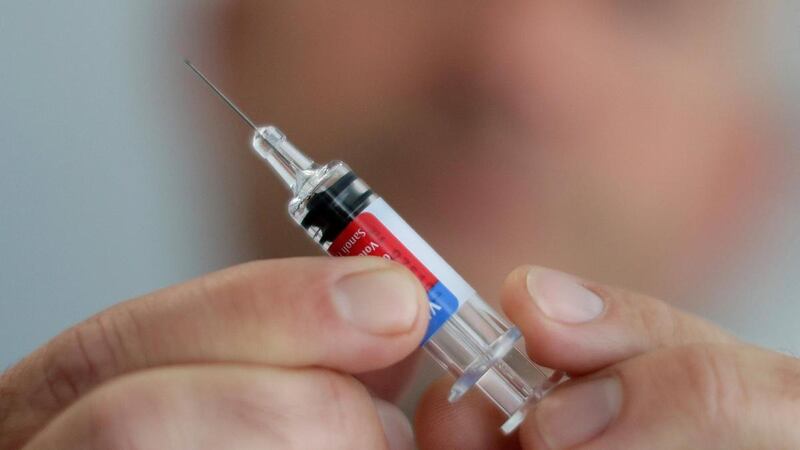Flu vaccinations should be made a priority among the most vulnerable in society as doctors fear they are facing the biggest outbreak yet this winter.
Influenza, an airborne virus, is becoming more resistant to antiviral drugs and is responsible for increasing numbers of deaths in America and Europe.
Doctors at VPS Healthcare, one of the largest private clinics in the UAE, said a worrying increase in flu cases this year had got alarm bells ringing.
“Every season over the past three years has been progressively worse,” said Dr Fadi Baladi, medical director for Burjeel Day Surgery Centre, Abu Dhabi, one of the hospitals in the VPS network.
“Flu strains are becoming more resistant and are spreading more easily among humans.
“We are mandated to report every flu case to the Department of Health in Abu Dhabi, as are other medical centres and hospitals.”
In 2017, Burjeel hospitals recorded 1,086 flu cases. So far in 2018, doctors have already recorded 670, and it is still the beginning of the season.
Doctors at Burjeel administered 666 vaccines in 2017, and 900 so far in 2018.
The flu season can last for about six to eight months from September to April, with October being the peak season.
Those with chronic diseases such as diabetes and kidney complaints, or anyone on drugs to treat immune deficiency illnesses such as recovering cancer patients are at greater risk.
Smokers, children and the elderly are also more susceptible, with health care workers also requiring a vaccination.
“Given how many cases we have seen so far, and how many are being reported across the world, there should be greater emphasis on education on flu and how to get vaccinated,” said Dr Baladi.
“There is a big disconnect between how severe flu can become and how easily it can be prevented with vaccinations and good hygiene.
“The public needs to understand it can be serious, but it is also preventable. Health care workers should all be vaccinated as a precaution.”
_________________
Read more:
[ The Spanish flu pandemic and its impact on the Middle East ]
[ What is the difference between Australian, French and Japanese flu? ]
[ Severe flu season leads to hospitalisations across the UAE ]
_________________
Vaccinations are relatively cheap at around Dh50 per shot.
This year doctors are seeing patients with flu have more gastro-intestinal problems, such as diarrhoea and vomiting, as well as the usual respiratory infections.
The transient nature of the UAE, with huge volumes of flights coming and going from Dubai and Abu Dhabi is also exposing people to the spread of the virus.
In September, passengers and crew who fell ill during an Emirates flight from Dubai to New York were confirmed to be suffering from influenza.
The flight was quarantined on arrival at John F Kennedy Airport while health officials took samples from 10 patients who had fallen ill on-board.
Increasing numbers of severe cases have become a global problem.
In America, the virus killed about 80,000 people in the 2017 to 2018 season, according tothe US Centre for Disease Control and Prevention.
That number was the highest in 30 years of annual records of flu cases, beating the previous record of 56,000 deaths.
In the UK, 2017-18 was the worst flu season in a decade but only 68.7 per cent of health care staff were vaccinated.
This year, health workers refusing the UK's National Health Service flu jab will be asked to explain why they do not want to be vaccinated, and could be moved away from wards with vulnerable patients.
Figures on the national uptake of flu vaccinations in the UAE are not available.
Runny nose, cough, sore throat, fatigue, headaches and a fever are all signs of influenza.
“An airport or anywhere there are crowds is a potential area to catch flu,” Dr Baladi said.
“It does not need much to spread it around and is getting harder to treat for sure.”







